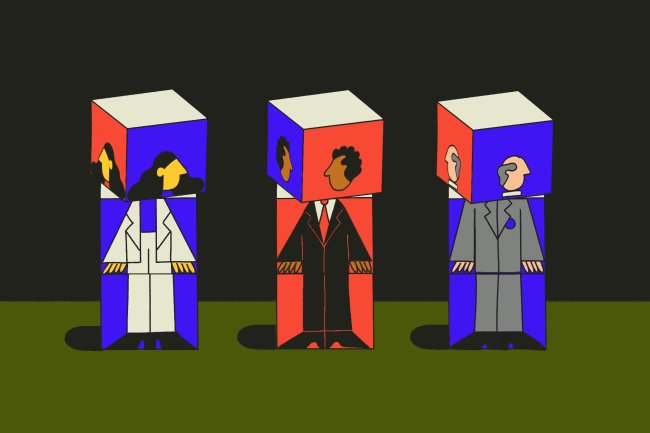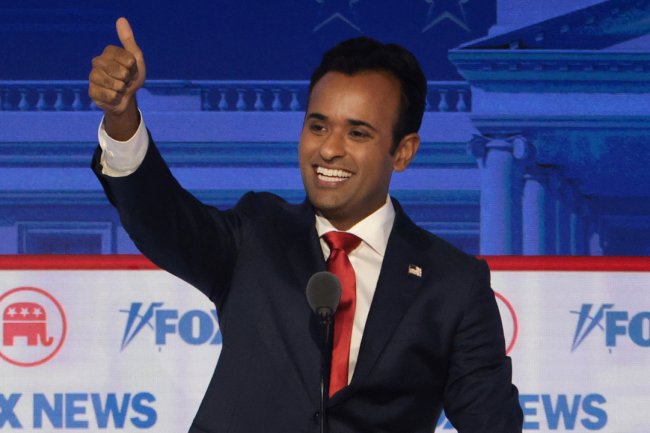The Supreme Court’s Racial Misfire
By The Editorial Board June 19, 2023 12:55 pm ET Photo: saul loeb/Agence France-Presse/Getty Images The only good thing that can be said for the Supreme Court’s 7-2 decision last week upholding the Indian Child Welfare Act, or ICWA, is that a new challenge might come soon. The shame is that in the meantime federal law will continue to elevate tribal prerogatives and racial criteria above the welfare of vulnerable Native American children. The ICWA, enacted in 1978, says that when a Native child is placed in an adoptive home, the priority goes to parents who are also Native American, even if they’re from a different tribe. Chad and Jennifer Brackeen, who aren’t Native, have taken in two Navajo siblings. The Brackeens live in Texas. Yet the Navajo Nation asked for the children to be


Photo: saul loeb/Agence France-Presse/Getty Images
The only good thing that can be said for the Supreme Court’s 7-2 decision last week upholding the Indian Child Welfare Act, or ICWA, is that a new challenge might come soon. The shame is that in the meantime federal law will continue to elevate tribal prerogatives and racial criteria above the welfare of vulnerable Native American children.
The ICWA, enacted in 1978, says that when a Native child is placed in an adoptive home, the priority goes to parents who are also Native American, even if they’re from a different tribe. Chad and Jennifer Brackeen, who aren’t Native, have taken in two Navajo siblings. The Brackeens live in Texas. Yet the Navajo Nation asked for the children to be moved to a different state, into potentially unrelated Native households, even over the objection of their biological parents, who testified on behalf of the Brackeens.
A group of parents and Texas challenged the ICWA, arguing that it exceeds Congress’s authority to “regulate Commerce” with Indian tribes; that it oversteps state power on family law; and that it commandeers state courts and officials. Justice Amy Coney Barrett, writing for the majority, rejects these arguments. “Congress’s power to legislate with respect to Indians is well established and broad,” she writes.
Justices Clarence Thomas and Samuel Alito write separate dissents against the ICWA as an unconstitutional intrusion on federalism and state police powers. They seem to us to have the better argument on the law.
And there’s more to this bad result. The parents also argued that the law’s scheme of placement preferences is based on race and thus unconstitutional. Justice Barrett says that in suing the federal government, instead of state agencies that apply the ICWA, they came after the wrong parties, so they lack standing and the Court need not decide that question.
But in a concurrence, Justice Brett Kavanaugh says this unanswered issue is serious. “A child in foster care or adoption proceedings may in some cases be denied a particular placement because of the child’s race—even if the placement is otherwise determined to be in the child’s best interests,” he writes, and the same goes for prospective parents. “Those scenarios raise significant questions under bedrock equal protection principles.”
The biggest disappointment is a lengthy concurrence from Justice Neil Gorsuch joined in part by Justices Sonia Sotomayor and Ketanji Brown Jackson. He recounts the ICWA’s historical context, which is the country’s long and ugly mistreatment of Native Americans, including rhetoric about how their children should be taken to live among “civilized” people.
Justice Gorsuch says the ICWA secures “the right of Indian parents to raise their families as they please; the right of Indian children to grow in their culture; and the right of Indian communities to resist fading into the twilight of history.” He approvingly quotes an amicus brief by the American Psychological Association, claiming that it’s “generally in the best interests of Indian children to be raised in Indian homes.” The brief goes on to say that “Indian caregivers are better able to transmit shared norms, values, and cultural knowledge,” which “contributes to the resiliency of Indian children.”
This sounds like the kind of racial essentialism that would be politically explosive if declared about children of another color. In 2011, according to a report from the Institute for Family Studies, 44% of adopted kindergartners in the U.S. were of a different race or ethnicity than their adoptive mothers. Tribal sovereignty is a complicating factor for Native American children. But the ICWA reaches children whose parents never enrolled them as members.
“ Altagracia Hernandez, ” Justice Barrett says, “chose Nick and Heather Libretti as adoptive parents for her newborn daughter, Baby O. The Librettis took Baby O. home from the hospital when she was three days old.”
Ms. Hernandez is not Native American. The baby’s father, who “visited only once but supported the adoption,” is “descended from members of the Ysleta del Sur Pueblo Tribe.” On that basis, “the Tribe enrolled Baby O.” and asked for the child to taken from the Librettis in Nevada and brought to their reservation in Texas.
Eventually, after legal action, the tribe relented. But how can this tribal intrusion based entirely on ancestry and to the detriment of individual children not be a violation of the Constitution’s right to equal protection?

Journal Editorial Report: GOP candidates, the press, and pretty much everyone reacts. Image: Mary Altaffer/Associated Press The Wall Street Journal Interactive Edition
What's Your Reaction?













